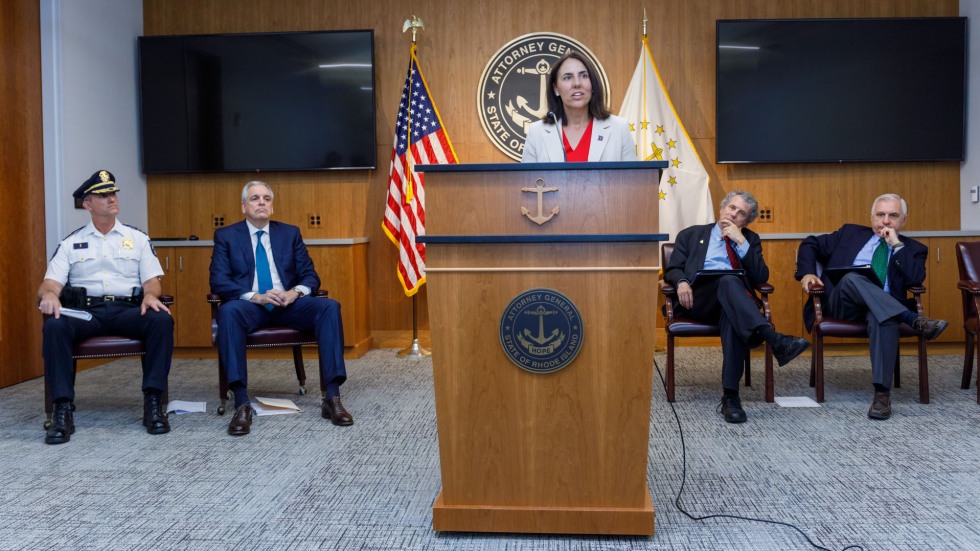PROVIDENCE, R.I. [Brown University] — When Dr. Francesca Beaudoin started working in hospital emergency departments in Rhode Island 15 years ago, overdoses were rare. Of course, that’s no longer the case: In 2021, 80,000 people in the U.S. died of an opioid drug overdose, nearly double the number of five years earlier — and Rhode Island has followed similar trends.
According to Beaudoin, interim chair of epidemiology at the Brown University School of Public Health and an associate professor of emergency medicine at Brown’s Warren Alpert Medical School, addiction is a chronic disease that can touch any household. The response to the country’s overdose crisis must be conducted in concert with community organizations, through collaboration with state and law enforcement agencies and, most importantly, by listening to people directly affected by the epidemic, she stressed.
“This is a public health threat that demands a response from our entire community,” Beaudoin said.
Beaudoin made those points during a discussion convened by U.S. Senators Jack Reed (Rhode Island) and Sherrod Brown (Ohio) to discuss the Fentanyl Eradication and Narcotics Deterrence (FEND) Off Fentanyl Act. The bill, introduced by a bipartisan group of senators including Sen. Reed and Sen. Brown, would include new sanctions and anti-money laundering penalties aimed at combating the fentanyl crisis by targeting the illicit fentanyl supply chain.
The discussion was held on Monday, June 26, at the Providence office of Rhode Island Attorney General Peter Neronha. Beaudoin reminded elected, state and law enforcement officials of the importance of approaching the overdose crisis as a public health issue.
“My sincere hope with this new legislation is that we will disrupt the illicit fentanyl supply chain without criminalizing people living with opioid use disorder here in Rhode Island,” Beaudoin said.
Before the public discussion, the senators and attorney general met privately with Beaudoin as well as Dr. Rachel Wightman, an assistant professor of emergency medicine and adjunct assistant professor of epidemiology at Brown. Wightman co-directs the TestRI project, which analyzes the composition of the state’s drug supply and communicates that information to users and other relevant groups.
Through research programs and community partnerships, experts at Brown are playing a leading role in efforts to reduce the harms of drug use, promote recovery and improve access to treatment and outcomes — all with the goal of saving lives. Despite making a meaningful impact, Beaudoin said, there’s still much work to be done.

